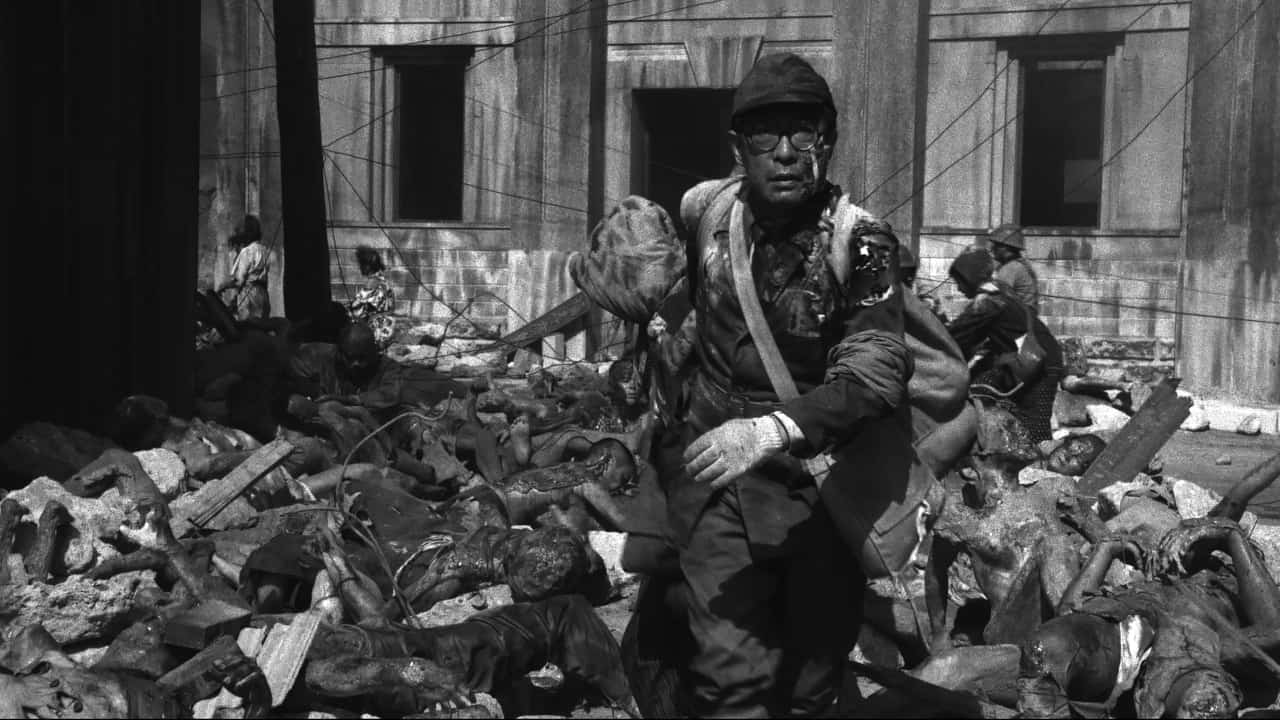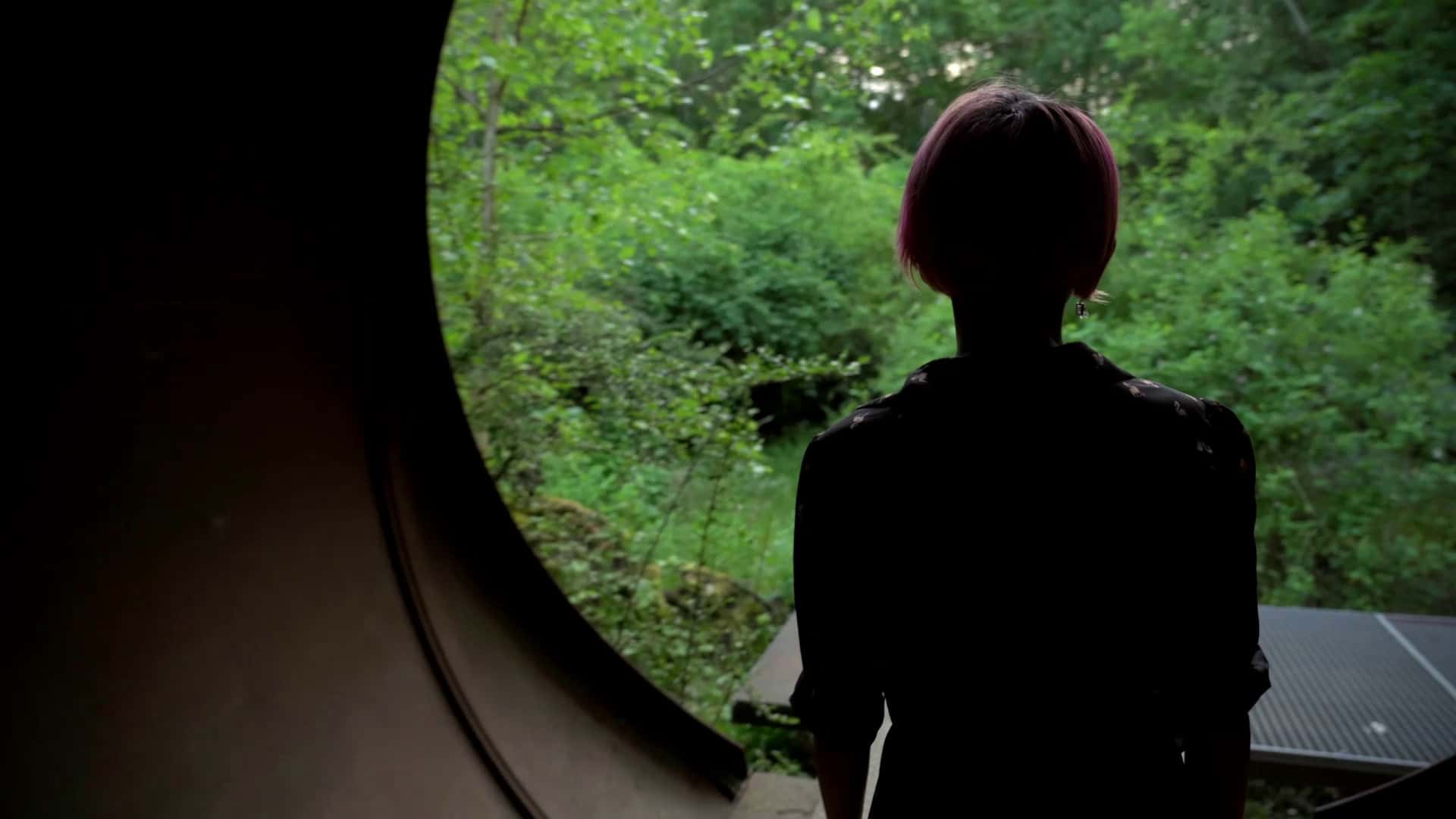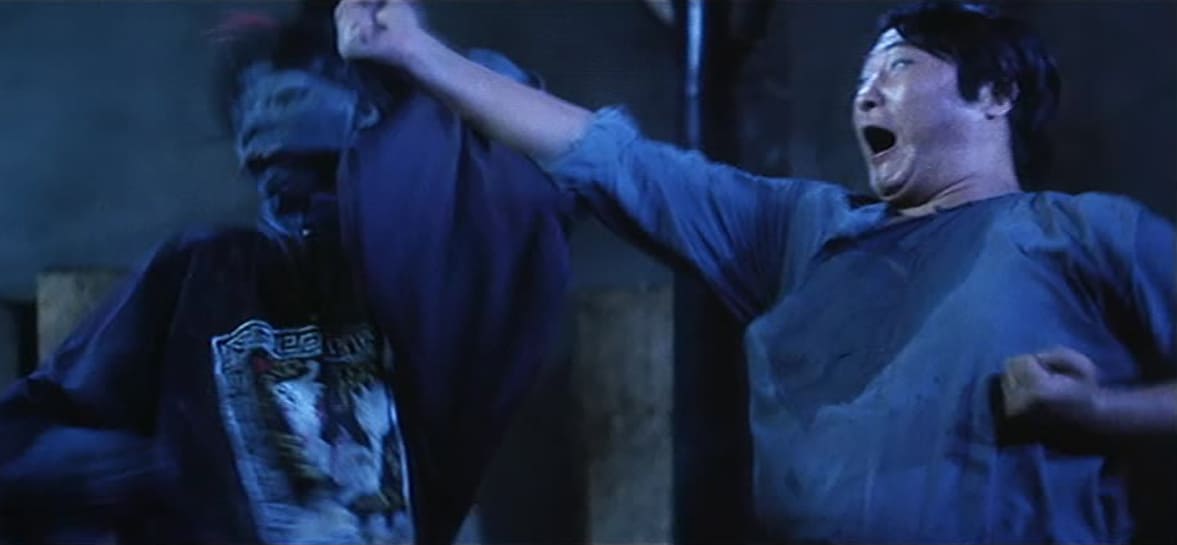There comes a certain moment in everyone's life, when it's time to abandon the nest and assert ourselves as a separate entity; when it's time to cut for good the invisible umbilical cord that straps us to our parents and when it's time to celebrate our own individuality. Frightening and utterly disrupting, this pivotal moment of crisis is a necessary step, very important for a future good life and good … storytelling. In fact, the array of strong – often extreme – feelings of this transforming process makes it one of the richest and rewarding topics to explore in any kind of narration, from cinema to music. Director and writer Kenichi Sono has his say on the matter in an imaginative and captivating fashion, with his 2019 1-hour-14-minute featurette “Fake Plastic Planet”.
Fake Plastic Planet is streaming on TodoiF

At the opening of the film, 25-year-old Shiho (Kasumi Yamaya) walks the dark streets of Tokyo at night, while her voiceover reflects about life being full of unexplainable coincidences like those that happened to her. In fact, a chance encounter with a blind fortune teller who swear she has met the girl 25 years ago seems to be only the first of a series of odd and seemingly unrelated events. Shiho's life is not a cushy one; she has lost her mum very early in life and more recently her father, she lives in a strange internet café that rents out tiny cubicles to a bunch of homeless, and she works in the sex industry to get some money. It is in that business that she has met her best (and only) friend Yuko (Kei Ichihashi).
Shiho has agreed to tell her story to Yuji Shimizu (Tomokazu Koshimura), a reporter who is writing about sex workers, but their interview is abruptly terminated when Shiho feels observed by a strange figure. On the same day she learns from one of her sleezy clients that she is the look-alike of a popular actress, Yoko Hoshino, who disappeared in mysterious circumstances at the age of 25, 25 year ago, more precisely on the day of Shiho's birthday. The resemblance between Shiho and Yoko is incredible and Yuko for a laugh, decides to dress up her friend like the actress and play a prank on an actor that used to date her in the days she disappeared, and the man's awkward reaction seems rather suspicious.
“Fake Plastic Planet” follows the convoluted capers of a confused and adrift young woman and illustrate in lurid colours her personal struggle in dealing with life adversities and finding her own identity and her own place. In doing so, Sono utilises a lot of fun and gripping topoi of genre films. The film starts as a bad girl, possibly pink movie and proceeds steadily into a possible murder mystery and fantasy territory, getting more and more convoluted and imaginative as the narrative unravels. Red herrings, cult fanatics, vanished people, bondage, Bible's quotes, and shocking coincidences merge and overlap to trouble to a boiling point Shohio's difficult time of her life. The film has indeed a sympathetic eye for Shohio and despite the playful tone, it never underestimates her struggles. She has lost every life buoyancy, her family, her home, and she is giving away her body to barely survive. Hidden in an oversize hooded top, behind large glasses, she is still like a little girl, insecure and vulnerable.
In all its madness and colourful pandemonium, FPP manages to also cast a peripheral view over some social issues of the challenges of everyday life in Tokyo for people with little income. One of the best inventions of the film is in fact the bizarre community leaving in the Internet café; like in a microcosmic condo of marginalised citizens, the people in the cubicles around Shoio are grumpy and diffident on the surface but have a soft, empathic core that forms a “flimsy-but-there” sense of belonging. A mid-film scene where their solidarity and camaraderie triumph is utterly satisfying and makes you cheer. In fact, it is only with the help of friends and friendly newcomers that Shoio keeps going to the end of the tunnel.
However genre-busting, shifty and chaotic as it may be, “Fake Plastic Planet” manages to keep you on the edge of your seat until the end, thanks to a good, dynamic script (also from Kenichi Sono), a well-measured gradual inception of mystery, and a rather fresh, realistic and natural performance from the spontaneous young actress Kasumi Yamaya), and also – to be fair – from the whole cast.
Visually, “Fake Plastic Planet” is a genuinely accomplished piece of work. The melancholic Tokyo urban landscape is framed beautifully, making some of the sets look like an animated photo exhibition. A great deal of care has been input in the colour grading; the film is bathed in a light pink and blue light that gives it a vintage ambience and grain, despite the overall actuality. It's all very well calibrated though, not just the same old bright neon lights here, instead, it has the feeling of a pro version of an Instagram filter.
To conclude, “Fake Plastic Planet” is a classic coming-of-age story, presented in a rather fun package. It is whimsical and captivating, and has all the ingredients to appeal to a very diverse audience. Enjoy the ride!
















